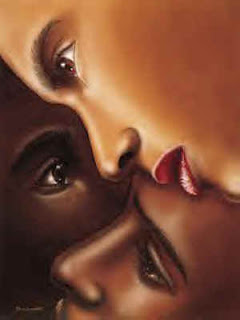 The struggle for African American women's literacy is best illustrated in Maria W. Stewart's work, which advocates initiation and action for the sustainment of "the race." Personal experience has enabled her to speak out against injustice in an era that did not grant women, in general, this priviledge. Born in Hartford, Connecticut in 1803, she grew up as a servant both indentured and domestic, however, moving to Boston and marrying James W. Stewart gave her some liberty. Now that Maria was apart of the African American "middle class," she used her respected status within the racial group to gain political favor. However, especially after the Civil War, "...African American women in the natural order [were] not only as intellectually and socially inferior to others but also amoral, licentious, and lascivious." Based on this frivilous idea, Maria is the exception.
The struggle for African American women's literacy is best illustrated in Maria W. Stewart's work, which advocates initiation and action for the sustainment of "the race." Personal experience has enabled her to speak out against injustice in an era that did not grant women, in general, this priviledge. Born in Hartford, Connecticut in 1803, she grew up as a servant both indentured and domestic, however, moving to Boston and marrying James W. Stewart gave her some liberty. Now that Maria was apart of the African American "middle class," she used her respected status within the racial group to gain political favor. However, especially after the Civil War, "...African American women in the natural order [were] not only as intellectually and socially inferior to others but also amoral, licentious, and lascivious." Based on this frivilous idea, Maria is the exception.Maria W. Stewart literally goes against the grain. Meanwhile she questions her purpose and asks "if not now, when? If not me, who" Aware, yet careless of the social practices, as it is a woman's place to be in the home, Maria is determined to make her voice heard. This kind of persistence, in favor of the African American society, has been the strength of many activits and civil rights leaders alike by bringing change and injustice to the forefront. Furthermore, Maria published works such as "Religion and the Pure Principles of Morality: The Sure Foundation on Which We Must Build" in the Liberator, an anti-slavery newspaper in which she focuses on equality and obtaining liberty, but particularly about the importance of education. By publishing articles, speaking in public and gaining recognition, the tactic of being "rebellious" has proven to be an inspiration for others to join in on the cause. Going a step further, Maria calls out to the "daughters of Africa" and lets them know, "It is not the color of the skin that makes the man, but it is the principles formed within the soul."


